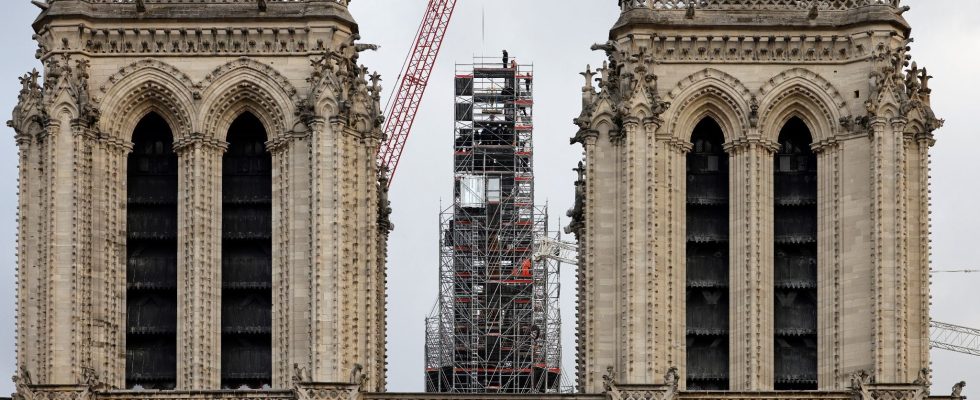The reconstruction of Notre-Dame de Paris was a magnificent success. Work of such magnitude, of such quality, carried out in five years thanks to a historic collection of private money, close to 1 billion euros: who could believe it? France has always been the country of letting go followed by a surge. This project will remain as an example of a start. Being married to a stained glass worker who worked on this site, I was able to experience this miracle “from the inside”, or almost.
We would like the soufflé not to fall again, which requires us to question the specifics of this reconstruction. Because, on closer inspection, the reasons why this feat was made possible say a lot about what is artificially lowering the dynamism of the French economy, and about the somewhat sad view that our society has on it – even.
The crucial point to understand is that, when it comes to being fast, efficient and innovative, our State must go through an exceptional regime. The Olympic Games village, built in Seine-Saint-Denis, which will allow 12,000 people to find housing or work after 2025, could be completed in five years and with a controlled budget thanks to the specific legal system put in place for the event. Under the normal state of the law, its implementation would have taken at least ten years, with the associated additional costs. This is why the first law on the Paris Olympics, passed in 2018, “adapts the town planning rules”, as it is modestly said in the text, that is to say it drastically simplifies them. and short-circuits the infernal system of compulsory public consultations, generally dominated by the “Khmer Greens”, and to which any fairly substantial project is now submitted in France before, too often, failing.
Work carried out without calls for tenders
It is also quite interesting to note that the second law relating to the Olympic Games, that of 2023, is perfectly liberal: whether it concerns video surveillance, weekend work, training of caregivers or bike rental, it simplifies or authorizes. Magnificent admission by the State, which implies that freedom and innovation are the best guarantees of efficiency and that, in the normal course of things, it prevents them. The 2019 law on the restoration of Notre-Dame was in the same vein as the laws on the Olympic Games: lowering of taxes on donations, simplification, possibility for the government to act by ordinance to “derogate from certain legislative provisions which would be necessary to facilitate the completion of the work.
Here again we will note the modesty of language. What the law on Notre-Dame admits covertly is that the French legislative monster, supported by a passionate bureaucracy and zealous administrative justice, prevents the effective realization of any major project. In fact, the 2019 work, carried out urgently, was carried out without calls for tenders.
More recently, the President of the Republic announced a competition for the creation of contemporary stained glass windows, to replace those of Viollet-le-Duc. Excellent idea, insofar as the stained glass windows in question are of mediocre interest, with all due respect to the master’s thurifers. Yes, but they are classified as historical monuments, and therefore in principle untouchable. In our monarchical Republic, the presidential word can work miracles and, when it wishes – it is far too rare – it can break conservatism. Unfortunately, it is a safe bet that, once the Notre-Dame construction site is inaugurated and the Olympics are over, normal economic life in the country will take over.
The craftsmen, praised for five years, will have to return to the finicky calls for tenders. European and French legislation on the use of lead will be ever more strict, without sufficiently listening to the demands of those who work. Private money will be more difficult to raise. The Town Planning Code will resume its mad rush towards maximum complexity… And we will be sad that our country, full of nostalgia, is sinking into economic torpor and social resentment.
Nicolas Bouzou, economist and essayist, is director of the consulting firm Astères
.
